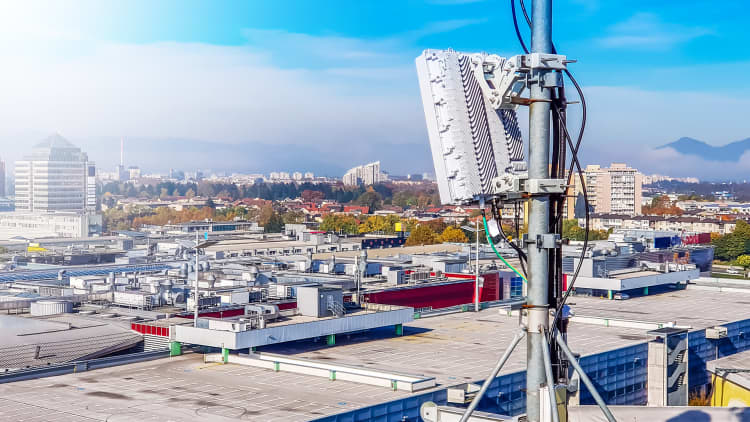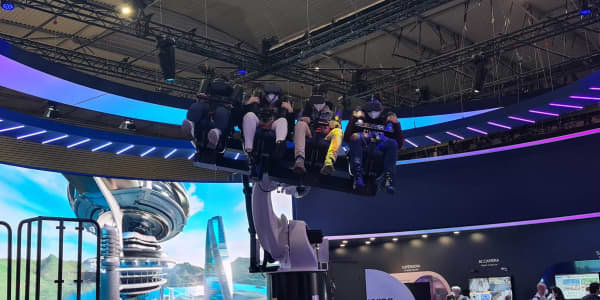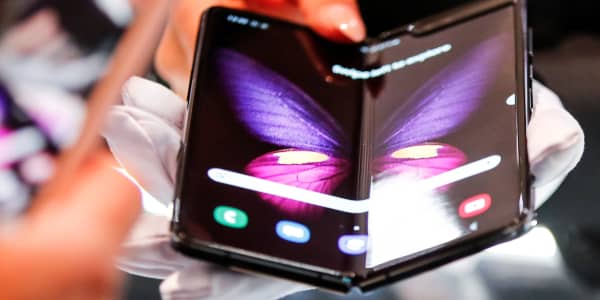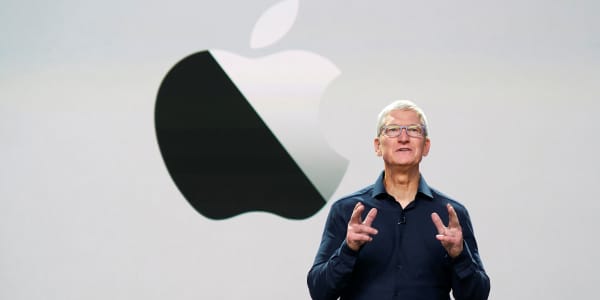President Trump isn't the only one talking about 6G.
Trump sent a series of tweets last month mentioning 6G, saying he wanted to see the technology alongside 5G in the U.S. "as soon as possible."
The tweets created a stir because 5G, the fifth-generation wireless network that promises super-fast speeds for consumers and businesses, is just now starting to roll out in some parts of the world, while 6G technology doesn't actually exist yet.
But at the Mobile World Congress (MWC) trade show in Barcelona last week, 6G wasn't such a far-fetched idea for some industry experts.
"There will be a 6G," Nokia CEO Rajeev Suri told CNBC's Karen Tso last week in Barcelona. "We at Nokia Bell Labs are already starting to imagine what that 6G will look like and what the use cases might be."
To be clear: 6G technology is far from being a reality. Suri said Nokia spent more than ten years researching 5G, adding its practical applications are just starting to show up for consumers and companies. GSMA Intelligence, a research firm, estimates 5G will account for only 15 percent of mobile connections globally by 2025.
"It is the right time to be researching on 6G but not the right time to be productizing anything related to 6G," Nokia's Suri said.
Mehdi Bennis is an associate professor at the University of Oulu in Finland who started researching 6G last year. The university will be hosting its first "6G Summit" later this month in Finland to start identifying the challenges and technical requirements of the technology. In an interview at MWC last Wednesday, Bennis said the first 6G networks will be at least 10 years away.
"Standardization will not start before 2028, so currently we are at the very beginning setting the stage for what are the requirements for this generation," he said.
As for how 6G might be different from previous wireless networks, Bennis speculated it would be even faster, with higher frequencies and seamless interactions between computers and machines.

5G is touted as a technology that will transform industries like autonomous vehicles, health care and manufacturing by enabling machines to communicate with very little lag time. Regulations and technical requirements around 5G are still being determined in various countries around the world. One issue is a lack of available spectrum, which refers to the radio frequencies allocated to wireless networks.
"5G is a packaging of the latest technologies and it's very valuable in the sense of it brings a lot of innovation, but the needs are intrinsic regardless of 5G or 6G or 4G," said Iyad Tarazi, CEO of Federated Wireless, a U.S.-based startup that is trying to make more spectrum available through airwaves used by the U.S. military.
Most industry experts at MWC, including telecom CEOs and regulators, agreed getting 5G, not 6G, networks up and running is the priority for now.
"I'm still curious to see exactly what 5G will bring first," Lucilla Sioli, director of artificial intelligence at the European Commission, told CNBC last week.






